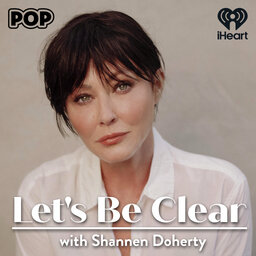Let's Talk About Dads...with Shannen Doherty
An episode of 'Let's Be Clear' that's dedicated to all the fantastic fathers and father figures out there.Shannen shares her special bond with her dad and the impact he had on her life.She explores how she coped with his passing, and a part of her that's grateful he's not here to witness her battle with cancer.
In 1 playlist(s)
Let's Be Clear with Shannen Doherty
Let’s Be Clear… a new podcast from Shannen Doherty. The actress will open up like never before in…Social links
Follow podcast
Recent clips

Let's Get Real with Selma Blair and Amanda Kloots
41:24

Let's Find our Second Wind...with Marion Jones
39:09

Let's Find The Prescription for Joy...with Dr. Tiffany Moon
33:00
 Let's Be Clear with Shannen Doherty
Let's Be Clear with Shannen Doherty